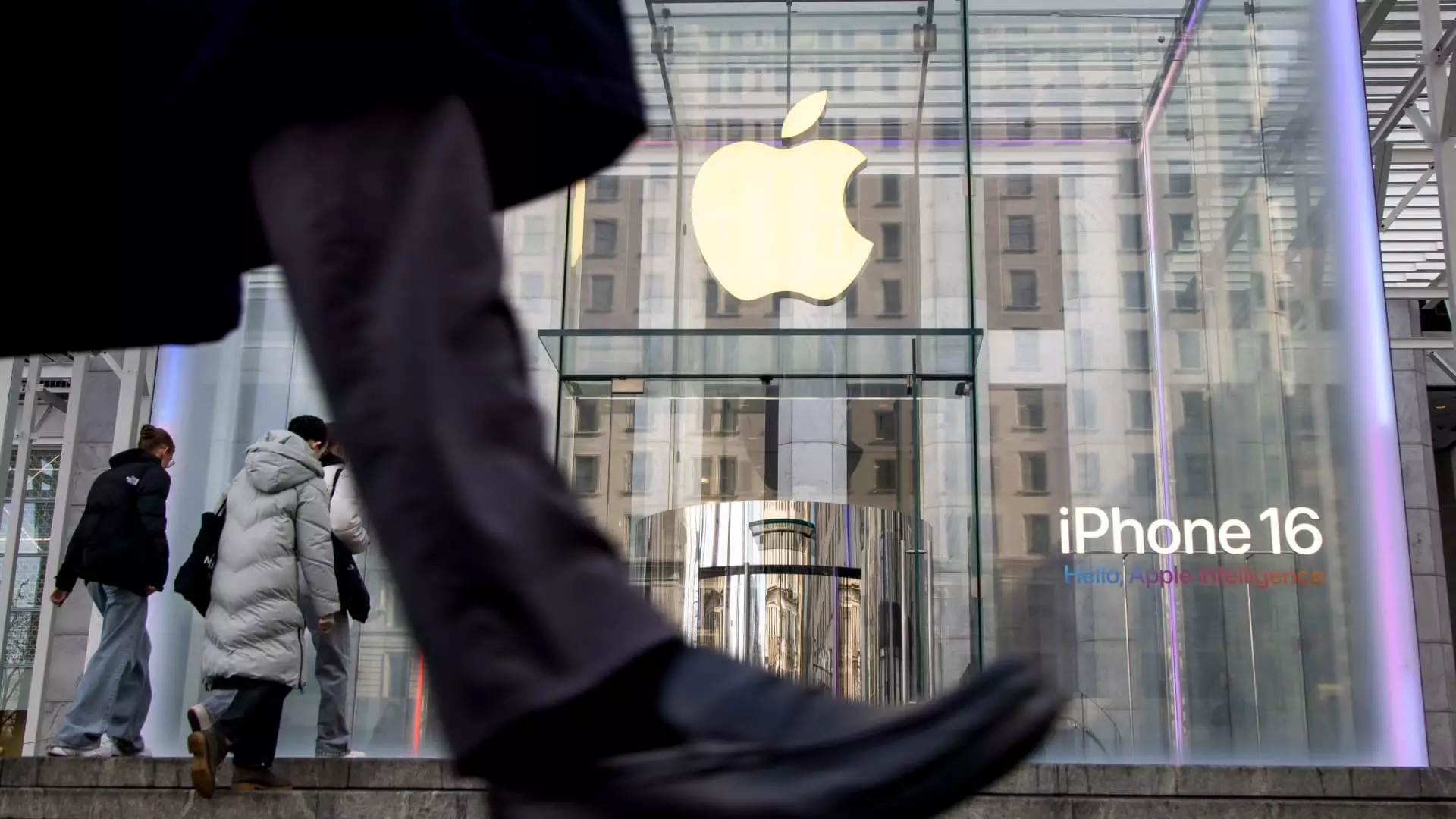The winds of trade war are blowing ominously over American households, and the shadow they cast is deepening every day. A recent survey from NerdWallet reveals that an astonishing 85% of Americans harbor concerns about the impending repercussions of tariffs. Despite a temporary reprieve in reciprocal tariffs, consumers are already bracing for a storm of economic pressure, fearing that these policies will not only disrupt their budgets but may also push the economy closer to recession.
Worries that tariffs will escalate the cost of living can lead to an erosion of consumer confidence that paints a worrisome picture for the economy as a whole. The University of Michigan’s consumer sentiment index showed a staggering decline of over 30% since December, including an alarming 11% drop from the previous month. Such staggering figures suggest that fears are more than mere trifles—they reflect real anxieties among the populace regarding their financial future.
The Cost of Tariffs: A Cautionary Figure
When we peel back the layers of consumer concern, we encounter alarming statistics. According to the Budget Lab at Yale University, these tariffs could cost the average American household an eye-watering $3,800 a year. In a landscape where even essential goods are increasingly unaffordable, this price tag serves as a cruel reminder of the complexities underlying economic policy. With existing inflationary pressures eating into budgets, the new tariffs are little more than an additional burden on beleaguered consumers.
These figures encourage a more profound examination of economic behavior. Kimberly Palmer, a personal finance expert, notes that consumers are already adapting their spending habits in response to these fears—45% plan to cut back on non-essentials, while 33% aim to tighten their belts even further by reducing spending on necessities. The urgency to save more is palpable; 30% plan to bolster their emergency funds. Yet, intriguingly, only 14% expect to pay down their debts amidst this financial turmoil, indicating a potential misalignment of priorities as people navigate this precarious landscape.
Making Tough Choices in a Tariff-Heavy World
As Americans survey their financial landscape, they find themselves grappling with difficult choices. Stephen Kates, a certified financial planner, underscores the importance of having an emergency fund. He recommends a reserve of at least one month’s essential expenses, though ideally, it should span three to six months of living costs. In a time when jobs can evaporate overnight, this cushion can function as a vital lifeline against excessive debt accumulation.
Balancing savings versus debt repayment becomes a tug-of-war, particularly in an environment where tariffs are already adding layers of financial stress. Some must decide whether to settle for only the minimum payment on their revolving debts. Kates advocates a structured approach through the “debt avalanche” strategy, which prioritizes paying off high-interest debts first. This method could yield a rapid return and potentially free up essential household cash flow.
But here lies the paradox: while individuals are encouraged to save adequately for emergencies, this advice comes with caveats—those with debts must strategically incorporate repayment into their financial plans to ensure a healthy balance between saving for a rainy day and tackling existing financial burdens.
Retirement: The Neglected Edge
Moreover, with the focus predominantly pinned on immediate financial well-being, long-term financial health—specifically retirement savings—may take a backseat. In an economic landscape compounded by tariffs, consumers might neglect to take full advantage of employer-sponsored retirement plans and matching contributions, which are effectively free money. It’s crucial to strike a balance between preparing for unforeseen expenses today and securing tomorrow’s financial independence.
This inertia can spell disaster. The economic climate shaped by tariffs can’t be underestimated. The macroeconomic repercussions necessitate that consumers not only reevaluate their current expenditures but also approach their financial future with a holistic perspective. Tariffs may be seen as a distant issue in Washington, but their effects ripple nationwide, ultimately shaping the way Americans plan their finances in a world fraught with uncertainty, pressure, and inevitable change.

